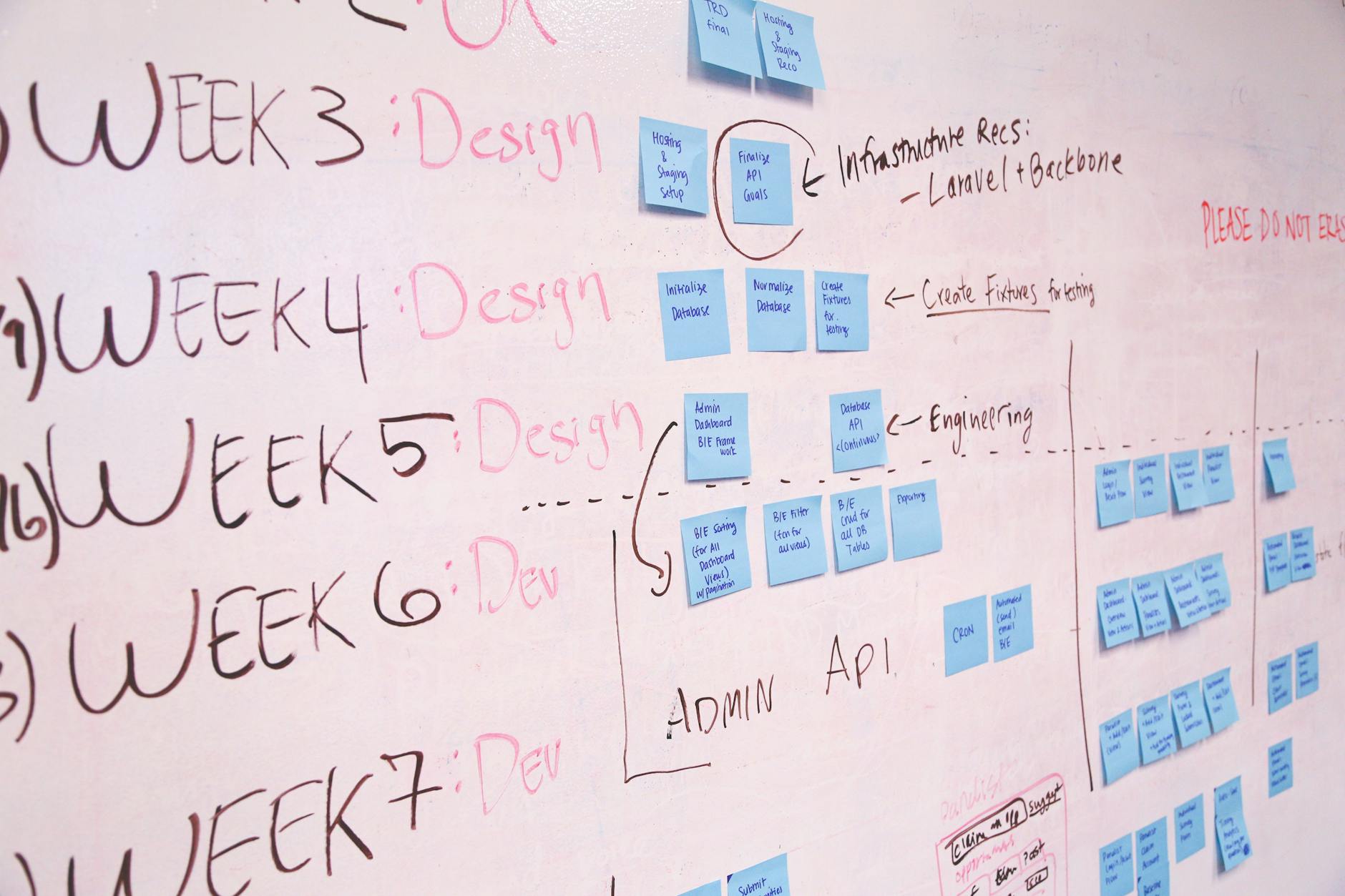 Interviewing, Jobhunting, JavaScript
Interviewing, Jobhunting, JavaScript 6 Strategies Learned from 6 months of Job Hunting
11 min read
After months of applying, interviewing, building, practising, connecting with others in the industry and being ghosted, I got an email that would change my previous situation, #opentowork to currently at XYZ. The email started with the line I spent months waiting to hear. “We are pleased to offer you the position of Fullstack Developer.” I think I stared at it for a few minutes and double-checked the header to make sure it wasn’t an ill-mannered prank.
Let’s see, it’s been 182 days had passed since I last had a paying position. That was followed by 6 months of job hunting and believe me … it is literally hunting. Job hunting or seeking or questing is one of the least spoken about skills that developers needs. If I was supposed to deconstruct this skill to its purest form, it’s learning to sell yourself as a solution to a potential employer’s need/problem. One should also remember you are not meant for every opportunity that you seek. Your personality, skill set, how you approach a problem and relate to people is unique, even if I am the only person to tell you that one fact. Believe me, so here are six lessons I learned while on the hunt :
Networking
{% twitter 1438175151829442569 %}
You are the sum of the six people you surround yourself with. I think that’s one of the lessons I learned from skimming the book: The 7 Habits of Highly Effective People by Stephen Covey. I decided to surround myself with those I could learn from, but it didn’t stop at coding or developers, as my future demanded a different version of me. I took the time to become an active participant in certain communities both virtually and in-person (namely FreeCodeCamp, CodeNewbies, the tech side of Twitter, Technologists of Color and most recently, Virtual Coffee), this meant commenting, presenting, talking, listening, contributing from your unique skillset, asking for help, participating and building new connections.
I stepped out of my comfort zone, and if you know anything about my past career and life as a middle school teacher, stepping out of one’s comfort zone is the beginning of understanding. And where understanding is wisdom will surely follow (we hope, at least !!!). So as you continue to seek your next role, it’s important to make your presence known and felt by becoming a part of communities… not a community. You want to reach a place of connecting with the mind and talents from all walks of life. Coding isn’t just about understanding a specific language JavaScript or Ruby, it’s understanding how the code will solve a human problem. The same can be said about people, you might gain some understanding from other disciplines to help you write better code and see the world clearer.
If you are new to building a network, I recommend meetups ~ virtually, online communities, LinkedIn, Twitter, twitter-chats ( looking at you #CodeNewbie and ), Slack communities, blogging communities [Dev.to, Medium, Hashnode, etc.]. And if you are asking me to tell you how to build a community on LinkedIn, no worries, I made a whole section for that and a bit more.

LinkedIn has changed over the last five years to become more than just a job-seeking site to one where professionals can share their insight and learn from each other. And yes, even the occasional joke can pop up in your feed. But it matters how you connect with others and what they share. No, I am not saying that you should spend all your time on another social media platform when you could be programming. What I am saying is that if you post once a week with questions, sharing your insight, talking about your experience, you will be in the 1% of people who post on LinkedIn.
LinkedIn has over 740 million users each year, and with one weekly post, you can land in the eyes of your dream job. Companies are looking for people who can tell their stories. Can you? Before you say, “But, I don’t know what to post, and no one will read it.” You’re wrong, you need to understand your writing is owning your space in this ecosystem. Here’s a few repeatable steps you can use to build your network on LinkedIn :
- Post your favourite quote and who said it, bonus points if it helped you to become a better developer.
- Tell a story of how you got started. What sparked your curiosity or what did you want to build?
- Comment rather than just liking a post. It builds engagement and sometimes your opinion is just what is needed on the post.
- When sending or making a new connection, write a note saying who you are, what you hope to learn from the person, what value you can bring to the relationship and/or where you met.
- If you want to have a virtual coffee, just say so. Make sure you are respectful of the other person’s time.
- Celebrate each other’s wins and send someone a small note of encouragement when you see they need it.
LinkedIn, essentially, is about connecting with other people with shared professional interests, remember to treat them as human first, and having an interest in job hunting maybe later. One of the best pieces of advice I have ever gotten on LinkedIn was to listen to this series by Danny Thompson, make notes and implement them accordingly.
Portfolio

So you’re looking for a job, but what do you have to prove you can do it? Building a portfolio is essential in today’s job market, note my strong emphasis. Learn to show off your project because your future self needs to learn how to advocate for yourself and your future employer needs to see it. The creation of a portfolio that demonstrates your ability to problem-solve, your tech-stack, documentation of your process, and creative tools you know how to use was more essential to getting an interview than you may think. If you are transitioning from consulting /freelancing to seeking a full-time position at a company, having a well-rounded portfolio that speaks to their interest and tech stack can be the deciding factor that lands you that new opportunity. All your portfolio should contain at least 3-4 projects with technologies that you feel competent and comfortable explaining. Each project should have a well-documented repository with a live version (preferably if applicable). Here are two different resources you can use to create or fix your portfolio, Ultimate Guide to Creating a Programmer Portfolio and 10 Web Developer Portfolio Tips.
Resume

Resumes can be a fickle thing, but you’ll need one and a very solid one. It can help you highlight your portfolio and further demonstrate your capability for your dream role. On any given day, one should have three versions of their resume, one with all their professional experience, one with all their tech experience and for each role, a tailored version. I am an advocate for one to constantly revising and updating each with new experiences and skills acquired over a 4-6 week period.
Remember that you are more than just your resume, you may not have all the skills now, but your resume should help to display your ability to learn as one of your greatest assets. If you are looking for tips on how to create a good developer resume, check out Guidance Counselor 2.0 + How to Actually Write a Resume by Taylor Desseyn, any of his guides that align with resume creation with developers in mind. FreeCodeCamp’s guides are also good references for this topic.
Practice

A core skill of being a developer is taking the time to hone your skills; whether by taking on new challenges or collaborating with others to become a part of communities around yourself. As you are what you do repeatedly, a better developer is someone is who makes the time to refine the application of their skill set to solve a problem. Practising, however, doesn’t just mean coding alone full steam on a project, learning how to collaborate is a form of practice. Making time to read, make notes and build is a form of practice. Reading other’s experiences can help you develop your approach to coding and building a new product is a form of practice. Remember that actively practising includes resting, taking care of your body, and don’t forget to connect with your friends in any way you can.
Here are a few resources that speak to this topic :
- Importance of Practice - K. Bryan
- Deliberate Practice: Achieve Mastery in Anything
- How to Use Deliberate Practice to Learn Programming More Efficiently

Creating Routines
“Don’t give up. Obstacles can be overcome through strategy and learning. ~ Hidetaka Miyazaki.”
From no-job having status to job-having status is a big leap as the dynamics of your life change. Not surprisingly though getting there without focus and discipline is almost a work of God. One begs to ask how one gets a new position? Everyone I have asked that question has a different answer, but one aspect of their answer remained the same— creating a routine that works for you.
Essentially you should break the goal of securing a job into smaller steps. So take the time to sit down and analyze all the components that come with looking for a job as a software developer ( deliberate practice, collaboration with other developers, job applications, responding to emails, creating content, participating in communities, going to meetups and virtual coffees, etc). Next, start by creating repeatable actions that will give you some form of control, think themed days or activities that put you in the mindset to code; think of creating a schedule and then sticking to it. Limit distractions and GET TO WORK !!!! This is never gonna work unless you do.
Additionally, we need to create a project with a goal in mind (What should it do for us). The schedule helps you stay on track to finish your project in a specific number of days or time slots. Use this as a template to demonstrate your workflow to future employers. Remember to be kind to yourself when setting up a routine, it takes at least 21-65 to form a habit, and you already have the blueprints to an amazing routine. Here are some additional steps you can take to create better routines that will help with the job hunt :
- 10 Effective Job Search Strategies, According to a Software Engineer
- The Junior Software Engineer’s Job Search Strategy Guide
- Are You an Entry-Level Software Developer? Here’s How to Stand Out and Get Hired
Things To Consider

So many developers fail to reach out to their communities when they need help. Be proactive. Build bridges so you can cross them and meet other people. Write about your experience, trust me, you could be helping someone who is having a hard time. Stay consistent and keep going. Please remember, a closed mouth doesn’t get fed and as you’ve heard the argument many times it bears repeating. Consider asking for an opportunity to show your work or help someone else as that is a part of your advocacy. As time goes by, you become a part of a community for a reason; ask for what you need. So start a blog, tweet about it, post on LinkedIn. Do whatever it takes to get the word out.
You are a talented developer, and you will need others around you to amplify your voice. Learn to shout together. But the most important thing to consider is to be kind to yourself. You are so much more than your job hunting process/progress. You are human, lovely and flawed, creating a solution with code that can change the world. Believe in yourself, and others will learn to have faith in your work.
Final #2cents

These are but the first six strategies that came to my mind while thinking about what to write. I would appreciate any feedback or your own tips. Find me “@nerajno” if you would like to chat, my DMs are open.
My secret sauce is that I have an editor and i tend to just string together ideas and she adds some body to them. Her name is Joy. She is a storyteller, home cook, poet, and writing consultant. She enjoys talking about building communities and the human condition. If you find her in a bookstore, approach her carefully with snacks. When she isn’t banging her head against a desk to write, you can find her drinking tea and reading a book. (probably a biography or manga).
FIN !

Disclaimer
This was originally published on dev.to in September 2021. I am currently migrating my main source of publication to a personal self-hosted blog (developer growth).